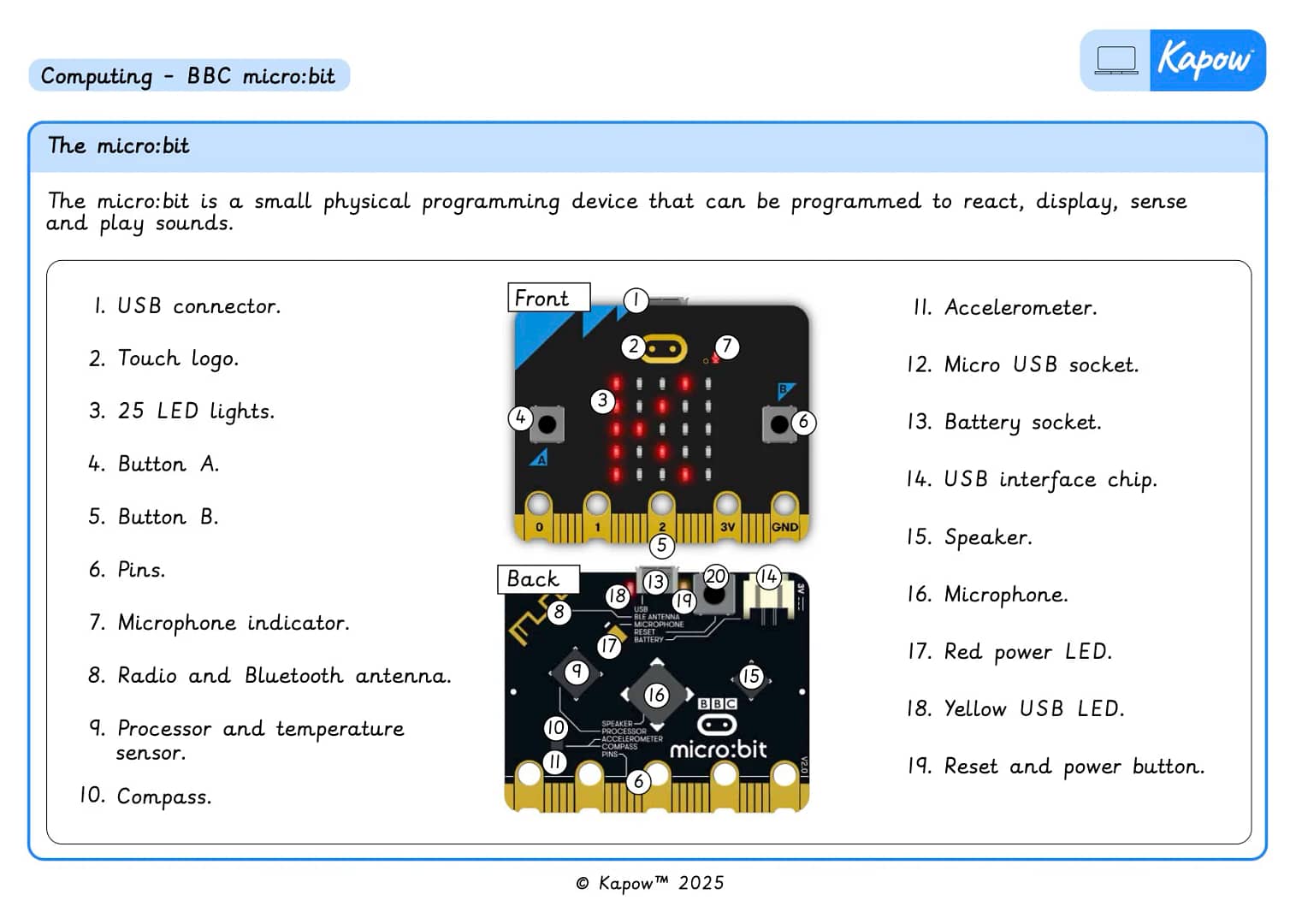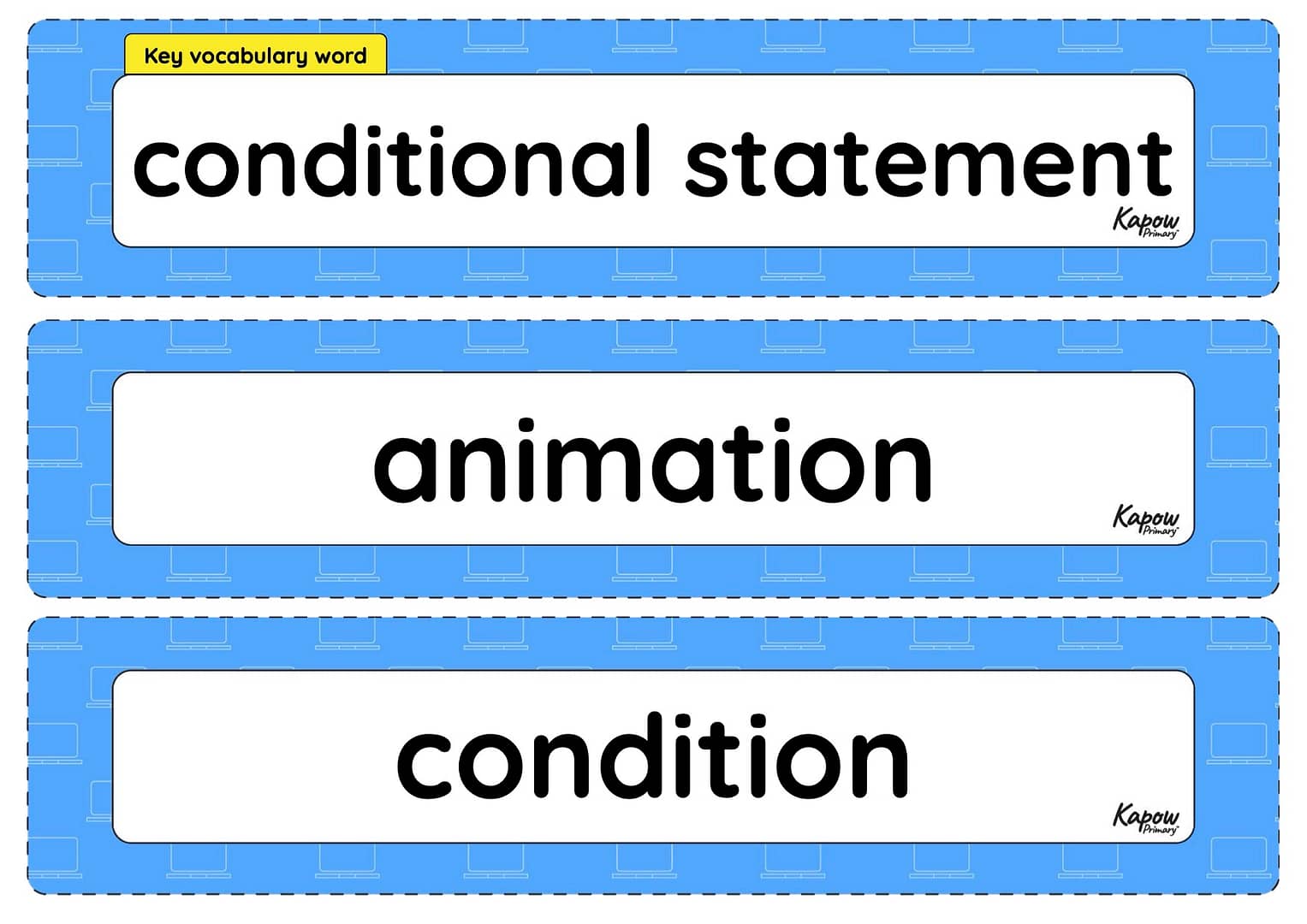*New* Programming 2: BBC micro:bit
Exploring how to program the BBC micro:bit, creating interactive projects with sensors, variables and conditional statements.
We’re monitoring the upcoming 2025 National Curriculum updates and will revise our resources when we know more. Learn more
- Subjects >
- Computing >
- Upper key stage 2 >
- Year 5 >
- Programming 2 >
-
*New* Programming 2: BBC micro:bit
Please note
This unit uses the BBC micro:bit, which is supported by the Micro:bit Educational Foundation and MakeCode, an online coding platform developed by Microsoft.
Unit outcomes
Pupils who are secure will be able to:
- Explore and test simple programs on the micro:bit.
- Predict and describe how code will work before running it.
- Plan and create animations using LED displays.
- Use inputs, variables and conditions to build interactive programs.
- Create programs that react to sensor data, such as pedometers and weather checkers.
- Create a program that responds to real-time sensor readings.
- Test, debug and evaluate programs by identifying and fixing problems.
Suggested prior learning
*New* Programming 1: Music
Get startedLessons
Lesson 1: Tinkering with BBC micro:bit
- To explore the micro:bit and understand how to connect and test simple programs on a physical device.
Lesson 2: Programming an animation
- To plan and create a simple animation.
Lesson 3: Programming a pedometer
- To create a program for the micro:bit using input, variables and conditions.
Lesson 4: Using the temperature sensor
- To create a real-world program using a sensor, input and a conditional statement.
Lesson 5: Debug and evaluate
- To evaluate and improve a program through testing and debugging.
Key skills
Key knowledge
Related content
Unit resources

Knowledge organiser – Computing Y5: *New* Programming 2: BBC micro:bit
Aimed at pupils, two pages providing key facts and definitions from the unit ‘BBC micro:bit’.

Vocabulary display – Computing Y5: *New* BBC micro:bit
A display version of the vocabulary from the unit 'BBC micro:bit'.
Teacher coding skills videos
Cross-curricular opportunities
English: Spoken language.
Physical education.
Mathematics: Measurement.
Science: Working scientifically.

